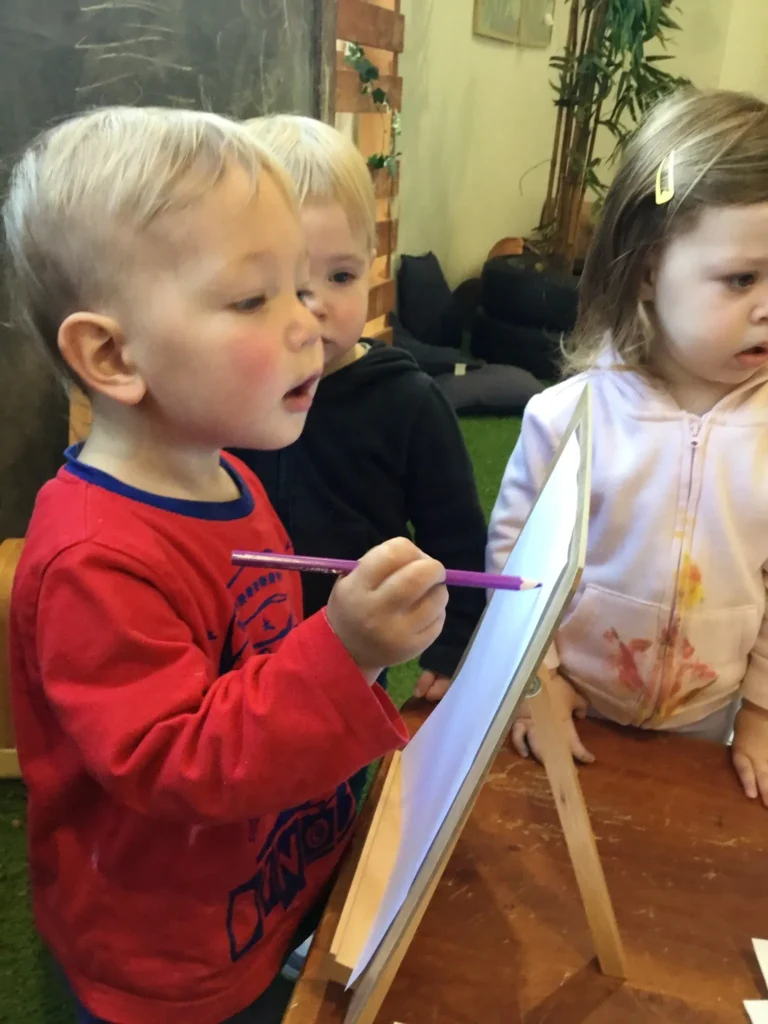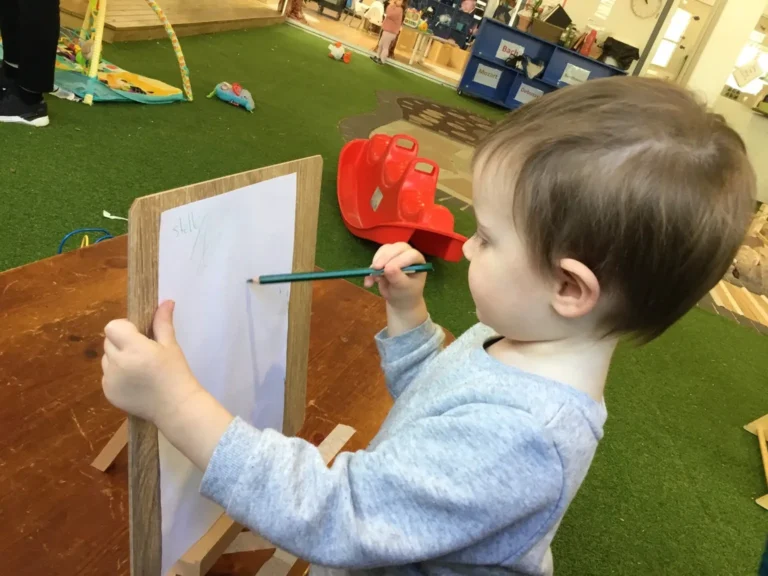Hi everyone, its Georgia again and this time I’m going to talk to you about tantrums, this is one topic that I am very passionate about and am constantly learning more about. I have done quite a few professional development workshops on this topic.
I also recommend for everyone who is dealing with children’s tantrums that they look up ‘Janet Lansbury – Elevating Child Care.’ Janet Lansbury follows RIE parenting and has helped me immensely not only with career but also my parenting approach.
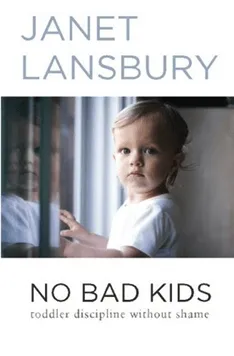
There is something about seeing a toddler meltdown that sets people on edge. Some people take it as the child developing a difficult character, causing a lot of parents to feel embarrassed on top of their own frustration desperately trying to calm their child down. Tantrums are also extremely common as it is a very normal part of childhood. Not many people are aware of this, but tantrums and how we deal with episodes actually provide good opportunities to establish some of your kid’s emotional skills. All behavior is communication.
What Is a Tantrum?
A temper tantrum is the emotional equivalent of a summer storm – sudden and sometimes fierce, but often over as quickly as it starts. One minute you and your child are enjoying your dinner in a restaurant, the next she’s whimpering, whining, and then screaming to go home. Thankfully, tantrums may be less frequent during the preschool years than they were during the terrible twos. But when tantrums do hit, they’re as challenging as ever. And as many veteran parents attest, tantrums may continue to flare up well into the grade-school years. Though you may worry that the tantrums are a sign of a difficult personality, take heart – at this age, tantrums are normal. It’s unlikely that your child is throwing a fit to be manipulative. More likely, she’s having a meltdown in response to frustration at her current situation or because of something else that has been bothering her.
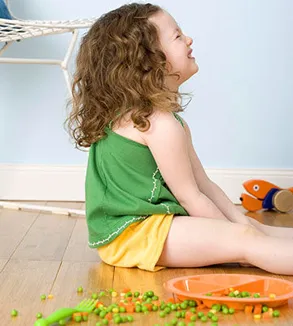
What Causes Tantrums?
Overwhelming emotions are often the cause of your pre-schooler’s tantrums. Although she probably won’t lose control as easily as she used to, she may slip into a tantrum when her emotions get the best of her. Fatigue, fearfulness, rejection by her peers, and sudden interruptions are also frequent tantrum triggers. Say your preschooler spies a picture of a scary monster in the afternoon. This can put her on edge emotionally, though she may not express it immediately. “When you put her to bed hours later, though, she might be more easily agitated than usual, and throw a tantrum that’s linked to heightened anxiety earlier in the day,” explains developmental psychologist Claire B. Kopp.
Give a Big Hug
“This may feel like the last thing you want to do when your kid is freaking out, but it really can help her settle down,” Levy says. “I’m talking about a big, firm hug, not a super cuddly one. And don’t say a word when you do it—again, you’d just be entering into a futile battle of wills. Hugs make kids feel secure and let them know that you care about them, even if you don’t agree with their behaviour.” Cartwright Holecko, of Neenah, Wisconsin, finds that it helps: “Sometimes I think they just need a safe place to get their emotions out.
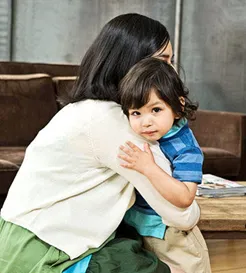
Give Your Child Some Space
“Sometimes a kid just needs to get his anger out. So, let him!” says Linda Pearson, a nurse practitioner and author of The Discipline Miracle. (Just make sure there’s nothing in tantrums way that could hurt him.) “I’m a big believer in this approach because it helps children learn how to vent in a non-destructive way. They’re able to get their feelings out, pull themselves together, and regain self-control — without engaging in a yelling match or battle of wills with you.”
Understand Why She Reacts so Strongly
Your preschooler can finally use words to tell you what she needs or wants, but that doesn’t mean her tantrums are over. She’s still learning how to handle her emotions, so a minor disagreement can quickly turn into a full-on fit. Because your child also values her growing independence, needing your help can be frustrating. She may lose it when she tries a challenging task, like tying her shoes, and realizes she can’t do it alone. While tantrums may start with anger, they are often rooted in sadness. Kids can get lost in how big and unjust a situation seems, and it’s hard to see the light at the end of the tunnel.
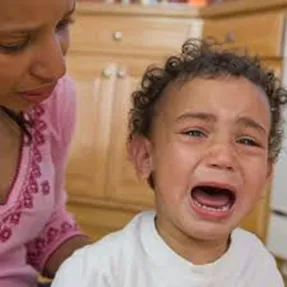
Don’t Lose Your Cool.
You may be tempted to stomp out of the room, but that can make your child feel abandoned. The storm of emotion he’s feeling can be frightening to him, and he needs to know you’re nearby. When your child is swept up in a tantrum, he’s unable to listen to reason, though he will respond – negatively – to yelling or threatening. “The more I shouted at Brandon to stop, the wilder he would get,” says one mother. What worked instead, she discovered, was to sit down calmly and just be with him while he raged. Rather than leave your child thrashing on the floor, summon up the strength to avoid yelling and quietly go to him. If he’s not flailing too much, pick him up and hold him. Chances are he’ll find your embrace comforting and will calm down more quickly. And if he’s showing a little bit of anger without getting too out of control, you can always try ignoring him until the storm passes.
Talk It over Afterward.
When the storm subsides, hold your child close and talk about what happened. Using simple language, acknowledge his frustration, and help him put his feelings into words, saying something like, “You were very angry because your food wasn’t the way you wanted it,” Kopp suggests. Let him see that once he expresses himself in words, he’ll get better results. Say with a smile, “I didn’t understand you because you were screaming. Now that you’re calm, I can find out what you want.” Then give him a hug.
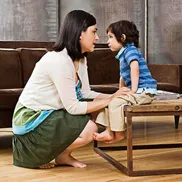
Take Steps to Prevent Tantrums
Set aside regular playtime with your preschooler. Let him take the lead in choosing the activity and give him your full attention. Having that shared positive experience will give your child a better foundation for calming himself down the next time he gets upset. Look for opportunities to point out his good behaviours, even the small ones. The more favourable attention he gets for a desired behaviour, the more likely he is to do it again. You can also model healthy ways to handle frustration in the heat of the moment, such as taking deep breaths. Equally important, fess up after you lose your temper by saying something like, “Oh, Mom really overreacted.” Your child needs to see and hear that it’s okay to make a mistake sometimes. Finally, set your little one up for success. Be aware of situations that tend to end in a tantrum, and plan accordingly. If he loses it when his tummy’s rumbling, pack a healthy snack. If he throws a fit when overtired, make naptime a top priority.

